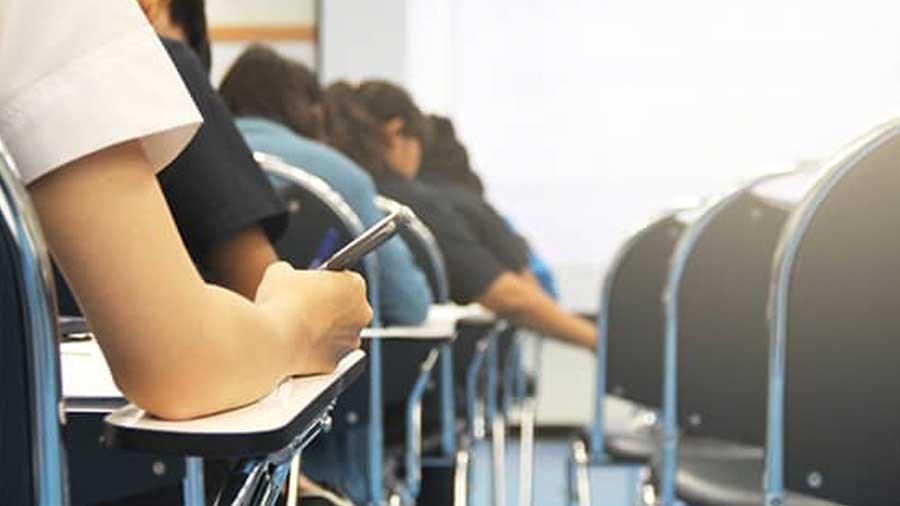Exam results at the end of the session in several state schools in the suburbs of the city and in the districts have revealed that the learning gaps in students created in the pandemic still remain.
After the pandemic, this was the first time students attended in-person classes for the whole year and wrote exams in school instead of online.
In a school in northeast Kolkata’s Belghoria, ‘grace marks’ had to be given to 100-odd students from classes V to IX so they would pass.
In a school in Howrah, there has been no improvement in the performance of academically weaker students, teachers said.
In a school in the Sunderbans, only about 50 per cent of students from classes V to IX have passed in all subjects. Before the pandemic, this figure was 65 per cent.
The gaps created in the fundamentals is impacting their learning and correspondingly, the results, said teachers.
“We are having to give them extra marks so that they can be promoted to the next class. The number of students requiring this help has gone up considerably,” said Soumen Pal, headmaster of Udaypur Haradayal Nag Adarsha Vidyalaya near Belghoria.
The reluctance to come to school every day is also one of the causes of the poor performance, said teachers.
Results are being prepared across several schools and they will be published before the session break.
The new session will start in January.
“Students in senior classes, from Class VIII, are more irregular in attending classes. For a significant section of our students, if they do not come to school, it is difficult for them to make any progress at home. They are first-generation school-goers and they do not have an academic atmosphere at home,” said Subhra Chakraborty, the headmistress of Howrah Jogesh Chandra Girls’ School.
Teachers said that the pandemic had impacted the students’ knowledge of basics, which was making learning difficult for them.
“Even those who are in school cannot follow what is being taught in class because the basics are not clear to them,” said Pulak Roychowdhury, headmaster, Kanaknagar SD Institution in Hingalganj in North 24-Parganas.
Roychowdhury said that there has to be continuous effort from the school to help children bridge the gap, which would involve rigorous reading exercises, writing and math practice.
Chakraborty said that those who were academically weak continued to remain so.
“It means that they picked up practically nothing during the online lessons,” she said.
During online classes in the pandemic, students struggling because of the lack of devices or the ability to recharge their phones.
Several schools had come forward to help their students with devices and recharge facilities.
“But now, whether it is a second-hand device or something else, students have a phone of their own. Their mothers are mostly not aware of what they are seeing on the phones and in how many ways the mobiles can be misused. Children are taking advantage of that and the use of the mobile has gone up,” said Murshida Khatun, headmistress, Debkunda Sk. Abdur Razzak Memorial Girls High Madarsah.
